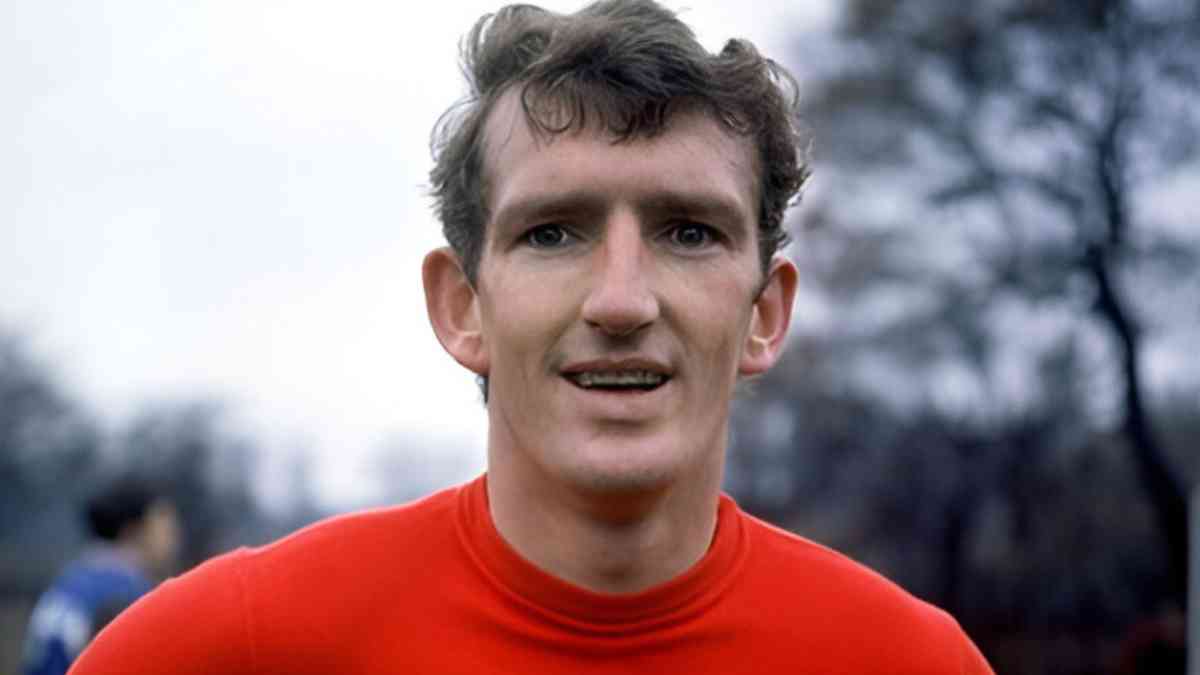Alex Stepney: The Legendary Goalkeeper Who Defined Manchester United’s Golden Era

When discussing the greats of English football, the name Alex Stepney commands respect and reverence. His legacy, marked by unwavering resilience, match-winning performances, and immense loyalty, places him among the pantheon of football’s most dependable goalkeepers. Born during the height of World War II, Stepney would go on to guard the net for one of the world’s most iconic football clubs—Manchester United—during a period that forever changed the landscape of the game.
Early Life and Humble Beginnings
Alex Stepney was born on September 18, 1942, in Mitcham, Surrey, England. His upbringing was simple, yet his ambitions were anything but. He began his footballing journey in the non-league circuits, showcasing his skills for Tooting & Mitcham United. It was clear from an early age that Stepney possessed exceptional reflexes, spatial awareness, and a calming presence that belied his age.
Despite lacking the glamour of top-flight football in his early years, Stepney’s persistence paid off. In 1963, he signed professionally with Millwall, a club then competing in the lower tiers of English football. At Millwall, Stepney’s performances earned him a reputation as a reliable last line of defense. Over three seasons, he made over 150 appearances, demonstrating consistency and maturity beyond his years.
A Short Yet Significant Spell at Chelsea
In May 1966, Stepney made a move to Chelsea. His time at Stamford Bridge was brief—just one solitary league appearance—but crucial. Chelsea’s then-manager Tommy Docherty signed him, only to allow Manchester United to swoop in a few months later. Ironically, this brief Chelsea chapter served as a stepping stone to the greatest period of his footballing career.
Manchester United: The Making of a Legend
In August 1966, Stepney transferred to Manchester United for what was then a world-record fee for a goalkeeper—£55,000. At the time, many raised eyebrows at the sum. Yet Sir Matt Busby saw in Stepney the steely determination and competence needed to anchor United’s defense.
His debut came swiftly on September 17, 1966, and fittingly, it was a clean sheet against cross-town rivals Manchester City. This marked the beginning of a twelve-year love affair with the Red Devils.
Champions of England: The 1966–67 Season
In his first season with United, Stepney helped the club clinch the First Division title. His composure under pressure, flawless communication with the defense, and spectacular shot-stopping abilities earned him praise from players and pundits alike. Sir Matt Busby famously attributed the title win significantly to Stepney’s presence, calling his signing a game-changer.
European Glory: The 1968 European Cup Triumph
Arguably, the defining moment of Stepney’s career came in 1968 when Manchester United became the first English club to win the European Cup. The final, played against Portuguese giants Benfica, remains etched in football history.
During a tense match at Wembley, Stepney produced a match-saving stop against the legendary Eusébio—a moment that defined the match. Eusébio, in an extraordinary show of sportsmanship, applauded Stepney’s incredible save on the pitch. That save kept the game level at 1–1, allowing United to win 4–1 in extra time.
This victory wasn’t just a win for Manchester United; it was a symbol of the club’s rebirth after the Munich air disaster a decade earlier. Stepney played a crucial role in that narrative of redemption and triumph.
Remarkable Consistency and Rare Feats
Stepney’s tenure at Manchester United was defined by remarkable consistency. He made 546 appearances for the club, keeping an impressive 175 clean sheets. His incredible positioning and ability to read the game turned him into a fan favorite.
Not just limited to goalkeeping heroics, Stepney also scored two goals for United—both from the penalty spot. This rare achievement for a goalkeeper underscored his coolness under pressure.
Trials and Loyalty During Challenging Times
After reaching the pinnacle of European football, United faced turbulent times in the early 1970s. Several key players retired or moved on, and managerial changes disrupted the team’s rhythm. Despite the club’s relegation to the Second Division in 1974, Stepney chose to stay and help the team rebuild.
His leadership was vital as United earned promotion back to the First Division in 1975. Stepney’s decision to remain with the club during its darkest days further endeared him to fans. It was a testament to his character and loyalty—traits not often associated with the modern game.
The England Cap and International Career
Surprisingly, despite his stellar club performances, Stepney earned just one cap for England. He played against Sweden in 1968 in a 3–1 win. He was, however, part of the squads for the 1968 UEFA European Championship and the 1970 FIFA World Cup.
Unfortunately, England had a surplus of elite goalkeepers during that era, including Gordon Banks and Peter Bonetti, which limited Stepney’s opportunities. Yet, he remained a valued squad member, admired for his professionalism and sportsmanship.
Move to the NASL and Final Years
In 1978, Stepney moved to the United States to play for the Dallas Tornado in the North American Soccer League (NASL). While this marked the twilight of his playing days, it also showcased his adaptability and continued passion for the game.
After two seasons in the NASL, Stepney returned to England for a short stint with non-league club Altrincham before retiring in 1980.
Life After Football: Coaching and Media
Retirement didn’t diminish Stepney’s love for the game. He transitioned into coaching, working with Manchester City and other clubs as a goalkeeping coach. His insights, drawn from decades of top-level experience, proved invaluable.
Stepney also ventured into broadcasting, becoming a popular after-dinner speaker and hosting a football call-in show. His storytelling ability, charisma, and candid reflections made him a sought-after voice in the football community.
Legacy: A True Icon of the Game
Alex Stepney’s contributions to football go beyond mere statistics. He represents an era when loyalty, grit, and humility defined a player’s legacy. Few goalkeepers can match his composure under pressure or his impact on a team’s fortunes.
From the moment he pulled on the Manchester United jersey, Stepney embodied professionalism and pride. His name is forever linked with the club’s golden era—the European triumph, league glory, and the unwavering fight during difficult years.
Generations of fans continue to revere him, and young goalkeepers often look to his career as a blueprint for success.
Conclusion
In the grand tapestry of English football, Alex Stepney is a golden thread—strong, steady, and shining. His journey from non-league obscurity to European Cup glory is both inspiring and instructive.
He was more than just a goalkeeper; he was a guardian of Manchester United’s legacy, a symbol of resilience, and a legend in every sense of the word.
Alex Stepney’s name will forever echo in the corridors of Old Trafford and in the hearts of fans who witnessed his greatness.



